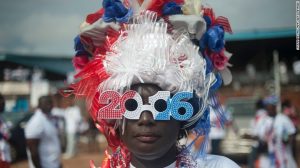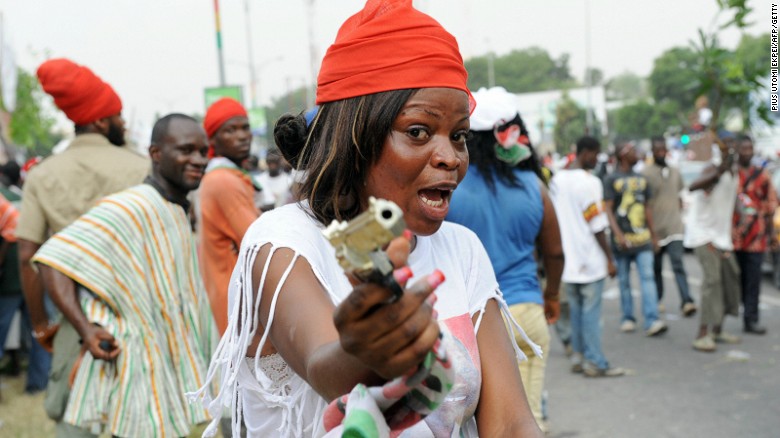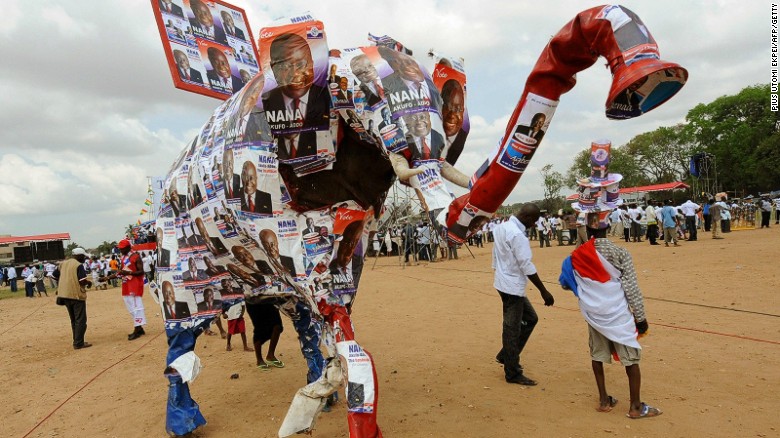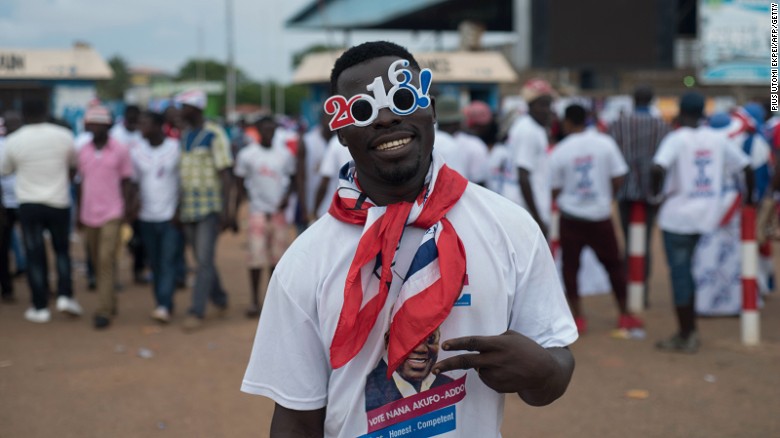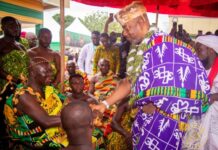Pictured: NDC supporters carry a picture of President Mahama in Accra, December 2012.
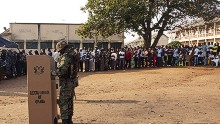
Pictured: A soldier casts his ballot at a polling station as other voters wait in line, in Accra, on December 7, 2012, during national elections.
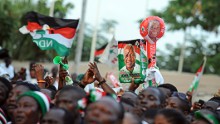
Pictured: Supporters cheer President Mahama during a rally in Accra in December 2012.
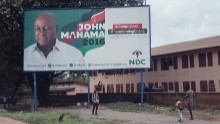
Pictured: President Mahama’s campaign billboard in the streets of Accra.
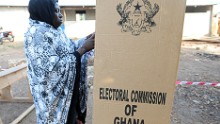
Pictured: A woman casts her vote at Maluwe, Bole Bamboi constituency in December 2012.
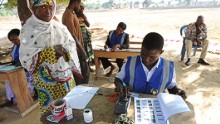
Pictured: An electoral officer checks the identity of a voter at the Bole polling station, in December 2012.

Pictured: An NPP supporter with number 5 painted on his body, referring to the position occupied by the party on the electoral roll, takes part in a prayer vigil in Koforidua on November 16, 2016.
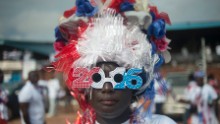
Pictured here: a supporter of Ghana’s largest opposition party New Patriotic Party (NPP) is seen at the party manifesto launch in Accra on October 9, 2016.
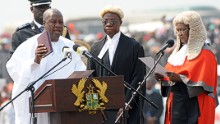
Pictured: President Mahama takes an oath of office at Independence Square, in Accra, January 2013.

Pictured: NPP supporters dance in the streets of Kasoa in December 2012.

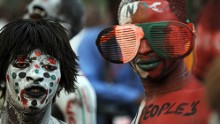
Pictured: NDC supporters attend a rally in Accra in December 2012 to cheer re-elected President Mahama as he accepts his mandate.
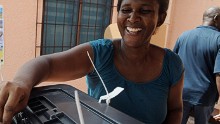
Pictured: A female voter casts her vote at Ayawaso West-Wagon Constituency polling station in Accra on December 8, 2012.

Pictured: A supporter of Ghana’s largest opposition party, New Patriotic Party (NPP), at the party manifesto launch in Accra on October 9, 2016.
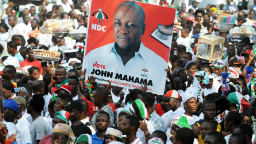
Pictured: NDC supporters carry a picture of President Mahama in Accra, December 2012.

Pictured: A soldier casts his ballot at a polling station as other voters wait in line, in Accra, on December 7, 2012, during national elections.

Pictured: Supporters cheer President Mahama during a rally in Accra in December 2012.

Pictured: President Mahama’s campaign billboard in the streets of Accra.

Pictured: A woman casts her vote at Maluwe, Bole Bamboi constituency in December 2012.

Pictured: An electoral officer checks the identity of a voter at the Bole polling station, in December 2012.

Pictured: An NPP supporter with number 5 painted on his body, referring to the position occupied by the party on the electoral roll, takes part in a prayer vigil in Koforidua on November 16, 2016.

Pictured here: a supporter of Ghana’s largest opposition party New Patriotic Party (NPP) is seen at the party manifesto launch in Accra on October 9, 2016.

Pictured: President Mahama takes an oath of office at Independence Square, in Accra, January 2013.

Pictured: NPP supporters dance in the streets of Kasoa in December 2012.


Pictured: NDC supporters attend a rally in Accra in December 2012 to cheer re-elected President Mahama as he accepts his mandate.

Pictured: A female voter casts her vote at Ayawaso West-Wagon Constituency polling station in Accra on December 8, 2012.

Pictured: A supporter of Ghana’s largest opposition party, New Patriotic Party (NPP), at the party manifesto launch in Accra on October 9, 2016.
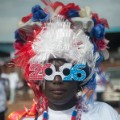
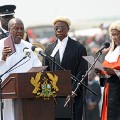



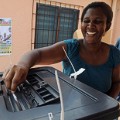


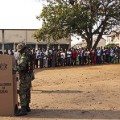
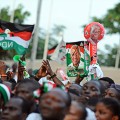
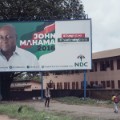
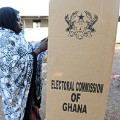
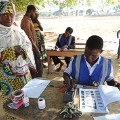

Story highlights
- Ghana’ s presidential and parliamentary election will be held on December 7, 2016
- The country’s faith in the electoral process plummeted after the last two elections
(CNN)This week the world turns it spotlight on Ghana as the West African country of 27 million people takes to the polls.

